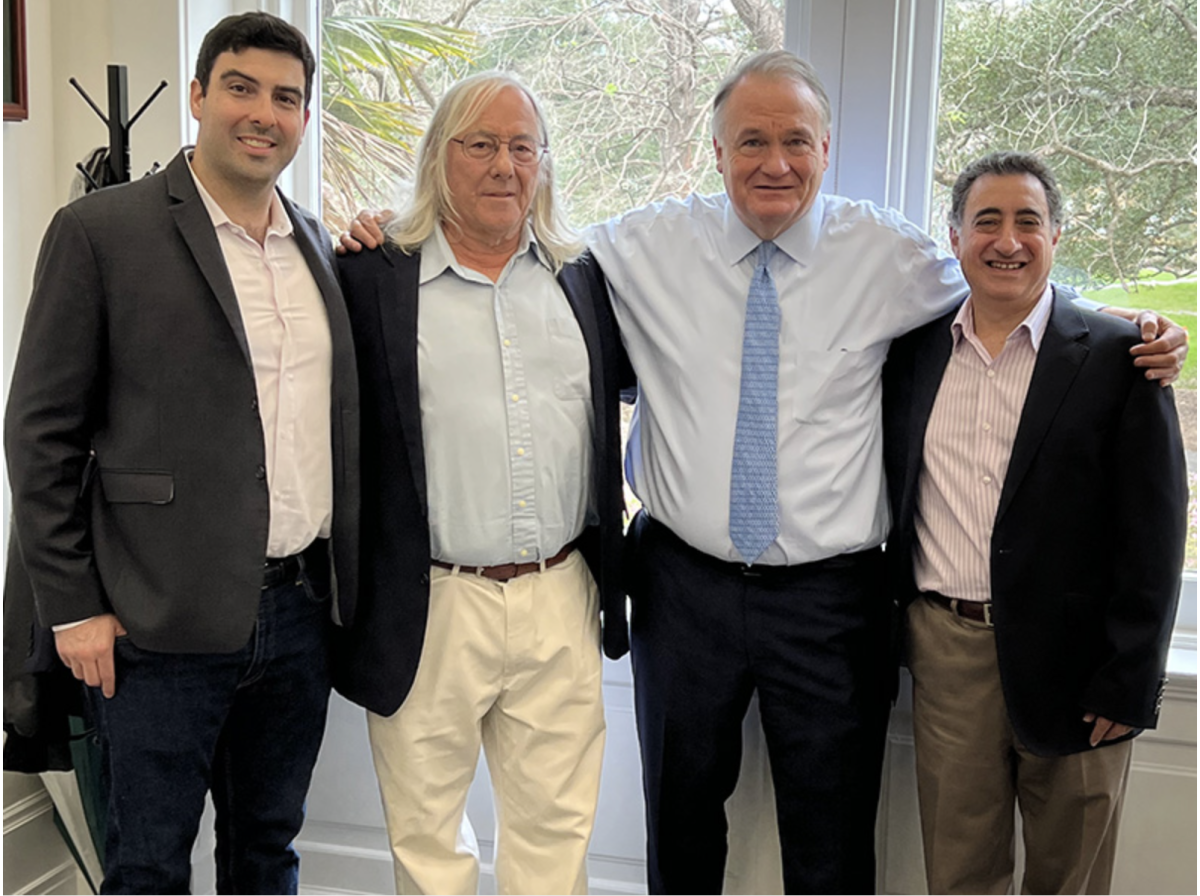Latin American Studies Major Alex Reed (‘08) Featured in Tulane Today
As a Latin American Studies undergraduate with a second major in economics, Alex researched issues related to international business and the complexities of fair trade. Since graduating, Alex has put these interests into practice, ultimately becoming the founding CEO of his company, Fluence Analytics (acquired by Yokogawa Electric Corporation), a technology company that delivers hardware/software systems for continuous process analytics enabling real-time optimization of manufacturing and R&D processes. In 2016, Alex was one of Forbes’ 30 under 30 recipients, and he has received numerous local and regional entrepreneur and innovation awards. Alex remains active in the New Orleans community, in addition to Houston and Portland, mentoring local entrepreneurs, students, and faculty on the commercialization of technology and entrepreneurship.
This story below originally appeared in Tulane Today and was written by Barri Bronston.

Tulane President Michael A. Fitts, second from right, celebrates the recent acquisition of Fluence Analytics by Japanese industrial giant Yokogawa. Pictured with Fitts are three of the Tulanians behind the success of the company, from left, company President Alex Reed, Professor Wayne Reed and CEO Jay Manouchehri.
In 1997, Tulane University physics professor Wayne Reed developed a technology in his lab to make the production of polymers — which are used to create plastics and other widely used products — greener and more efficient.
Reed’s technology, known as Automatic Continuous Online Monitoring of Polymerization (ACOMP), also aims to improve product quality and enable the manufacture of more sophisticated polymers, while reducing emissions and energy consumption and increasing the safety of workers and surrounding communities.
Within a year of conceiving his idea, Reed and his students constructed their first prototype for their new process and published their first peer-reviewed article, which immediately drew the attention of major industries.
“This type of innovative, translational work embodies our vision for research at Tulane. Fluence is a case study in tech development and deployment."
Tulane President Michael A. Fitts
“At that point, I envisioned the technology coming into widespread industrial use in about five years,” Reed said. “But it actually took 25 years for it to go from proof-of-concept to adoption by a global high technology company!”
Last month, Japanese industrial giant Yokogawa Electric bought the company that licensed and commercialized Reed’s innovation, Fluence Analytics, making it one of Tulane’s most successful spinouts ever.
In lauding Fluence’s success story, Tulane President Michael A. Fitts said he envisions a future where the lab-to-market process is completed in much less time.
“This type of innovative, translational work embodies our vision for research at Tulane,” Fitts said. “Fluence is a case study in tech development and deployment. Tulane recently launched the Innovation Institute to bring breakthroughs and research like this to market faster.”
Kimberly Gramm, the David and Marion Mussafer Chief Innovation and Entrepreneurship Officer at the Tulane Innovation Institute, called the acquisition of Fluence Analytics by Yokogawa “a spectacular story about excellence and perseverance.”
“This is a great example of what is possible,” she said. “Their journey is precisely what the Innovation Institute is here to help other innovators and entrepreneurs accomplish within a much shorter time frame.”
"We want students, faculty and alums to accelerate their ideas and connect faster to the market by providing those early resources that are difficult to find,” Gramm said. “We want to provide guidance, so more ideas and technologies are de-risked quickly to make a difference.”
It’s a move that Reed embraces to make it much easier for those following in his footsteps.
“We want to help young innovators and entrepreneurs get oriented in the fraught waters of IP and start-ups,” Wayne Reed said. “It’s not for the faint-hearted.”
The co-founders of Fluence Analytics, which got its start as Advanced Polymer Monitoring Technologies, were all Tulane graduates, including Reed’s son Alex Reed, Michael Drenski and William Bottoms.
Fluence Analytics is among numerous companies that began at Tulane with assistance from the New Orleans Bioinnovation Center and the Tulane Office of Intellectual Property Management, which protects technologies created from research and assists with patent strategies and de-risking technologies for commercialization.
In addition to ACOMP, the Fluence Analytics portfolio includes an innovative lab instrument to dramatically accelerate and optimize the development of biotherapeutics, which use natural biological substances to fight disease.
Fluence Analytics CEO Jay Manouchehri and Alex Reed called the acquisition an exciting chapter that will bring greater resources to the company and help accelerate its product roadmap.
“We owe so much to our team which has always persevered through many challenges,” they wrote in an email. “We especially want to thank Tulane for the early support and ongoing partnership in the technology.”
